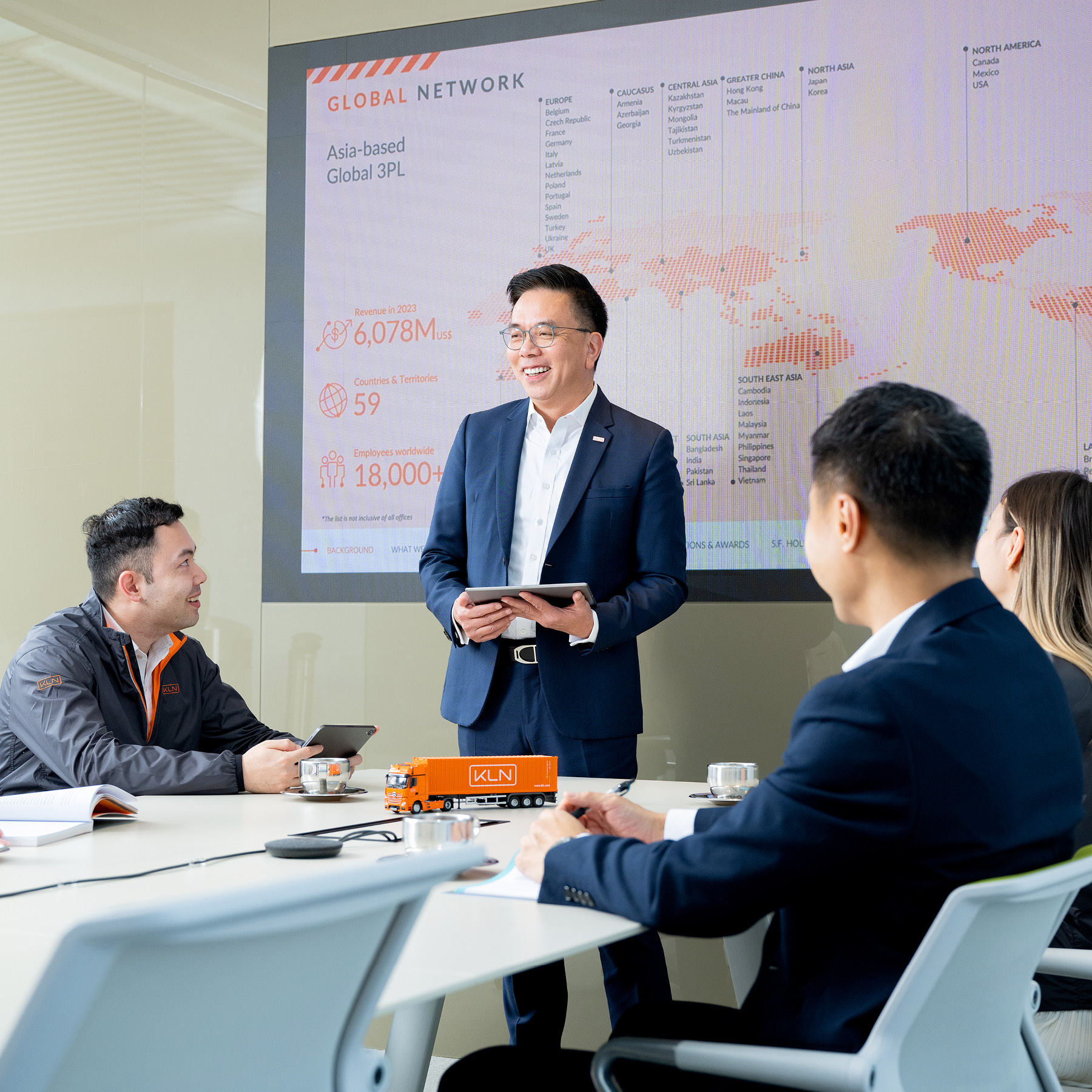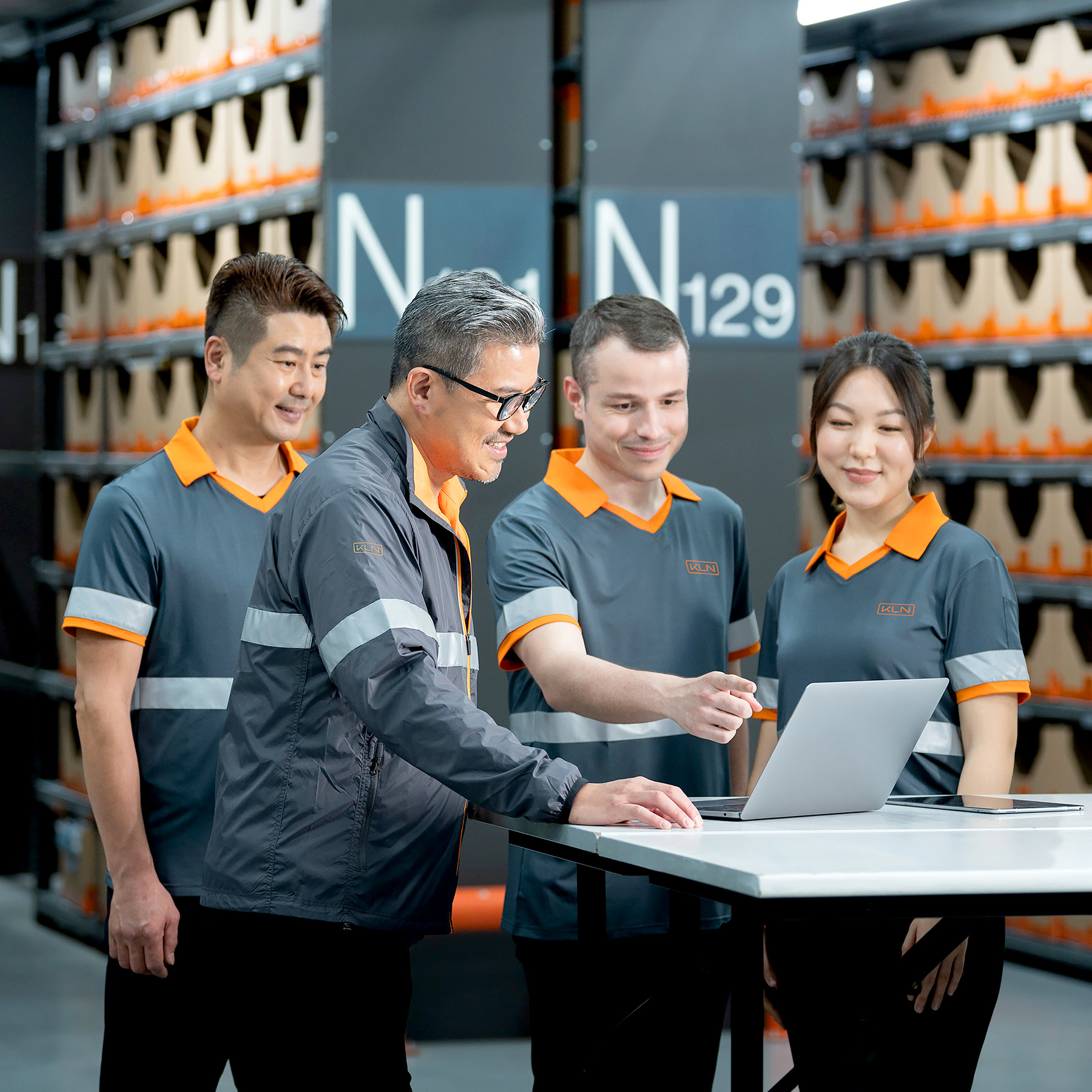Brave new world: Vic Cheung
In the wake of the COVID-19 pandemic, supply chains around the world are being galvanized, and third-party logistics companies are reaping new levels of success in the process. KLN CEO Vic Cheung says people are still the most important element in this new normal.
The worldwide scramble to regain pre-COVID levels of supply chain strength has led to the rise of third-party logistics or 3PL. As companies increasingly turned to 3PL to handle their handling, the sector went beyond white-hot to a level approaching thermonuclear.
The 3PL market, valued at US$1.1 trillion in 2023, is anticipated to more than triple by 2032. The businesses riding this remarkable wave are benefiting in several ways. Their bottom lines are as healthy as can be, their global footprint is constantly growing, and they’re seen as heroes to all those around the world with an interest in getting things from A to B.

"I felt it was an honor to join KLN."
The meteoric ascent of 3PL has left even its stewards astonished in the best possible way. Vic Cheung started a modest freight forwarding company in 1990. When, in 2016, Asia-based 3PL KLN made him an offer he couldn’t refuse, Cheung became a part of the KLN juggernaut.
"I felt it was an honor to join KLN," he tells The CEO Magazine. "I had several opportunities to sell my company, but KLN and I were both from Hong Kong and that made the decision easy."
Four years after the sale, Cheung was contemplating retirement.
"Next thing I know, I’m invited to join the KLN board," he says. "I thought, ‘Why not?’ I’d never had a chance to manage so many people in such a large organization."
Cheung’s promotion to CEO coincided with the advent of the COVID-19 pandemic, leaving the playing field comparatively empty.
"Not too many people were left to take on such an opportunity, so I went for it," he says. "On one hand, it’s a challenge, but it’s also exciting to deal with so many stakeholders."
Global footprint
With a presence in 59 countries and territories around the world, KLN was much larger than Cheung was used to. The company’s supply chain solutions range from integrated logistics and international freight forwarding to e-commerce and industrial project logistics.
"I learned a lot," he admits. "We have a large footprint in Asia, so I had to get across that. In China alone, people behave and think differently between provinces, and then beyond that you have Singapore, Malaysia, Indonesia, Thailand and Vietnam.
"People try to generalize ‘South-East Asia’, but you can’t really say that anymore."

"When we see challenges, we have to deal with them together. That’s when we win."
With his background in international freight forwarding (IFF) as a foundation, Cheung was keen to stretch beyond his forte.
"I had to pick up on IL, contract logistics, which is a bit different to IFF," he says.
"IL is like farming. You plant the seed and you wait for months or years before you see what you have. IFF is like hunting; you don’t know what you’re going to see or what environment you’ll face."
Streamlining processes
More concerning was KLN’s Express sector, which hadn’t been performing.
"We realized that it was better to focus on our strengths, which are IFF and IL, so we streamlined," he says.
And that stripped-down approach is what carried KLN through the pandemic to the impossibly greener other side. Cheung says the company is energized to once again try new things.
"We have been number one non-vessel operating common carrier in the largest trade lane, the Trans-Pacific, for the last few years," he says. "So we’re looking at new verticals over the next three-to-five years."
One of those is KLN Project Logistics, which requires much more specialty knowledge and background.
"It’s a lot of multimodal transportation, oversized equipment such as wind turbines and windmills," Cheung adds.
"We also do the upstream and downstream. We’re also branching out into engineering. Once we’ve installed the equipment, we’ll provide the service and maintenance for years to come."
"Everything is automated, so operations basically run 24 hours a day. It’s amazing."
KLN’s ability to pivot to these other segments of the sector is a reflection of its sturdy foundation in Asia.
"When a lot of the vendors adopted the China Plus One strategy of shifting their supply chain reliance beyond only China, we stayed where we were," Cheung says.
"Because of our history and background, we were well positioned in the region for more than 10 years. People still don’t really know what that part of Asia has to offer. In Thailand, for example, we have our own sea port and an air service. On the land side, we have access to so many Asian borders. None of this is recent or a reaction to China Plus One; it’s who we’ve always been – experts in Asia."
New markets
Now, KLN has its sights set on Latin America and European trade.
"This is on the ocean side," Cheung says. "In the air, we’re proud to be partnered with SF Airlines, which has 90 cargo planes. No other service providers around the world can match that capacity. We’re putting a lot of energy into that collaboration, and it’s giving us much more capacity."
SF and KLN have even gone so far as to team up for ground operations in Ezhou Airport in Central China.
"It’s right next to Wuhan, so there’s a lot of manufacturing close by: Foxconn, the iPhone manufacturer, Lenovo and others. It’s thought this will become the number one air cargo hub in Asia – not China, but the whole of Asia," Cheung says.
"We entered into a joint venture to handle all ground services last year, and already the results are much better than we saw in 2024.
"Everything is automated, so operations basically run 24 hours a day. It’s amazing."
"We’re probably one of very few such service providers in Hong Kong to have this high level of standards."
Despite all this, Cheung insists that Hong Kong is KLN’s key market.
"We dominate the number one spot for contract logistics there," he says. "But things are changing. Vendors are moving out from China to greater Asia, and they’re demanding lower prices and higher standards."
In response, KLN is spreading its considerable expertise wider but still armed with the Hong Kong mentality.
"Customers are very happy, and the team itself is satisfied," Cheung says.
With so much growth, KLN has been careful to set very high standards of ESG.
"We’re probably one of very few such service providers in Hong Kong to have this high level of standards," he says.
"Sustainability matters to us. We’ve undergone digitalization. But this is a people business. You still need to work with people. IT can solve a lot of issues for us, and we’ll continue to invest in it, but I just don’t believe it can ever replace every person in our chain."
Reaching new heights
This focus on personal relationships is an echo of the personal beliefs Cheung infused in his small freight forwarding startup back in 1990 – beliefs that have carried on alongside him throughout his career.
"It’s very simple: you need trust, you have to have respect and you have to be transparent," he says.
"And when I say trust, I mean not only between you and your vendor but also your employees, your partners and your customers. It’s all mutual. And when I say transparent, I mean you have to be clear every step of the way with your people. That’s how we did it in the old days, and that’s the only way you can drive success."
"When I say transparent, I mean you have to be clear every step of the way with your people."
With KLN and the industry it is such an integral part of continuing to reach new heights, Cheung says success is a team effort.
"It’s not just me. It’s the team. We lay out our direction every year, and everybody passionately pursues the same result. When we see challenges, we have to deal with them together. That’s when we win," he concludes.